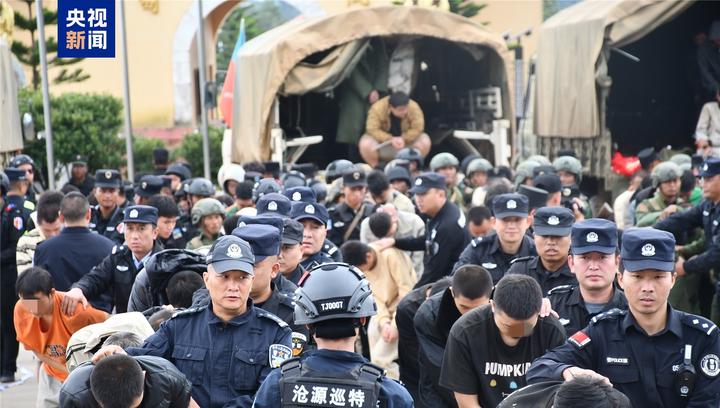Crackdown on Telecom Fraud in Northern Myanmar Reveals Complex Cross-Border Challenge
In a major breakthrough against telecommunications fraud, authorities dismantled large-scale scam operations in northern Myanmar, repatriating 763 Chinese suspects. This marks significant progress in China’s ongoing campaign targeting overseas telecom fraud networks.

The recent crackdown on telecommunications fraud operations in northern Myanmar represents a significant milestone in China’s efforts to combat cross-border criminal networks. Chinese law enforcement, working in cooperation with Myanmar authorities, has successfully apprehended 1,079 suspects in Myanmar’s Daying region, of whom 763 were Chinese nationals.
This operation reflects the evolving nature of telecommunications fraud in Southeast Asia. What began as small-scale operations has transformed into sophisticated criminal enterprises, with scam compounds shifting locations across different regions to evade law enforcement. The migration of these operations from northern Myanmar to deeper territories like Mawlamyine and Myawaddy demonstrates the adaptability of these criminal networks.
The scale of the problem is starkly illustrated by the numbers: Chinese authorities have repatriated over 53,000 Chinese nationals suspected of involvement in telecom fraud from Myanmar since the special campaign began. This highlights both the magnitude of the criminal operations and the effectiveness of recent enforcement efforts.
However, the situation is more complex than it appears. While the dismantling of major fraud compounds in northern Myanmar marks significant progress, criminal operations have begun relocating to other areas, including regions where Myanmar government control is limited. The involvement of local armed groups and complex political dynamics in these areas presents additional challenges for law enforcement.
The phenomenon of Chinese nationals targeting their own compatriots is particularly troubling. These operations have evolved beyond simple phone scams to include sophisticated digital fraud schemes, often involving forced labor and human trafficking. The criminal networks have demonstrated increasing sophistication in their methods, utilizing advanced technology and exploiting vulnerabilities in international financial systems.
Chinese authorities face significant challenges in addressing this issue. While the crackdown has achieved notable success in northern Myanmar, similar operations have emerged in other Southeast Asian countries. The transnational nature of these crimes requires sustained international cooperation and coordinated enforcement efforts.
The involvement of Chinese nationals in these operations against their own countrymen reflects deeper social and economic issues. Many perpetrators are themselves victims of human trafficking or coercion, while others are drawn by the promise of quick profits. This creates a complex cycle of victimization that extends beyond simple financial fraud.
Looking forward, the success in northern Myanmar, while significant, represents just one step in a broader campaign. The challenge now lies in preventing the relocation of these criminal enterprises to other regions while addressing the root causes that make such operations possible. This requires not only continued law enforcement cooperation but also enhanced preventive measures and public awareness campaigns to protect vulnerable populations from falling victim to these schemes.